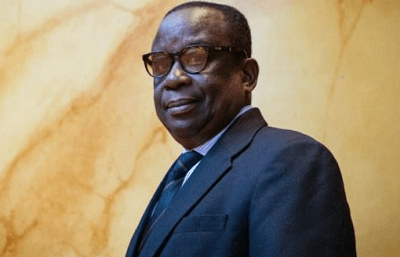The Ghanaian government has rejected reports suggesting that Islamist militants from Burkina Faso are discreetly using Ghana’s northern regions as logistical and medical support bases for their insurgency.
The allegations, published in a Reuters article on October 24, 2024, assert that Ghanaian authorities are turning a blind eye to insurgents allegedly crossing into the country to acquire supplies and medical treatment.
According to the Reuters story, which cited unnamed sources including Ghanaian security officials and regional diplomats, militants were allegedly accessing food, fuel, explosives, and medical care within Ghana.
However, in a response issued by Ghana’s Ministry of National Security, the government dismissed the notion of any non-aggression agreements or passive tolerance for militant activities in Ghana.
“The Ministry strongly rejects the portrayal of Ghana as a ‘supply line’ for militants,” read the Ministry’s statement.
It emphasized that Ghana’s counter-terrorism operations, especially along its northern border, have been commendably robust and are widely recognized by its international partners in the ongoing fight against terrorism.
The statement added, “The Government of Ghana, through its State Security and Intelligence agencies, conducts continuous operations to prevent terrorist infiltration or cross-border movement of militants. These operations have recorded notable successes over the years.”
Discrediting the source
The Ministry questioned the credibility of the Reuters article, stating that it appeared to be based primarily on an earlier publication by the Netherlands Institute of International Relations (Clingendael).
According to the Ministry, Clingendael’s report, already discredited for inaccuracies, implied that Ghana’s relative lack of terrorist incidents was due to a supposed “non-aggression” understanding with militant groups.
The Ministry stressed that such assertions were “entirely unfounded” and “misleading,” aimed at tarnishing Ghana’s reputation.
The Ministry of National Security explained that in August 2024, it held discussions with researchers from Clingendael to address inaccuracies in their draft report.
During the meetings, Clingendael agreed to incorporate Ghana’s clarifications before publication, yet the final report allegedly overlooked the Ministry’s official response, including clarifications about Ghana’s rigorous counter-terrorism stance.
Commitment to regional security efforts
Ghana’s National Security Ministry underscored that any suggestion of passive facilitation of militant activities undermines the country’s significant efforts to maintain security along its borders.
“Any suggestion that Ghana ‘passively’ facilitates extremist activities is incorrect,” the statement added, “and disregards the vigilance of our security personnel and the substantial resources the government has dedicated to fortifying our northern frontier.”
Ghana shares a 600-kilometer border with Burkina Faso, a country deeply affected by an insurgency linked to al Qaeda and ISIS that has destabilized much of West Africa’s Sahel region. Despite international efforts, the insurgents have gained ground, causing widespread violence and displacement over the last 12 years.
In this context, Ghana’s Ministry of National Security highlighted its close collaboration with neighboring countries to enhance intelligence sharing and operational coordination in addressing shared security threats.
Call for dismissal of the report
The Ministry called on the public and the international community to disregard “erroneous and irresponsible” reports of Ghana serving as a support base for militants.
It reassured citizens of its unwavering commitment to safeguarding national security and public welfare without compromising regional counter-terrorism efforts.
Ghana’s vigilance in bolstering security along its northern border and continued collaboration with its neighbors are central to its efforts to protect citizens from the wider threat of insurgency.





































